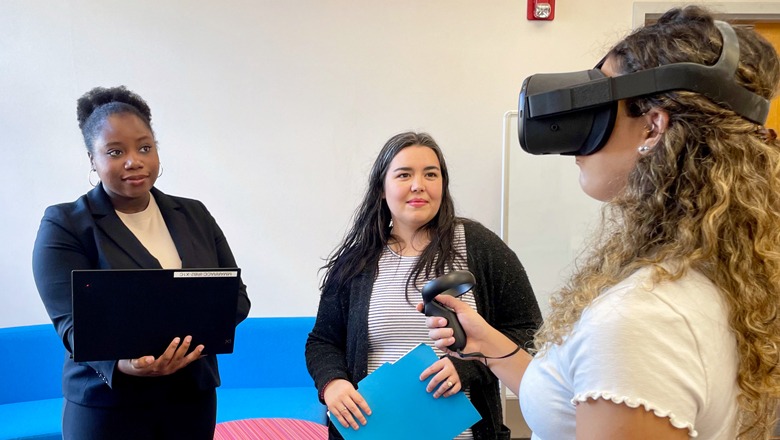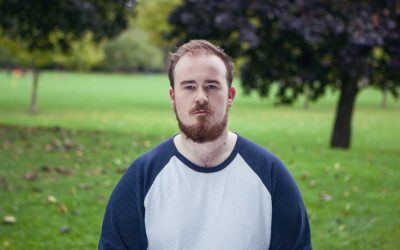Do natural variations in hormones, such as oestrogen, make anxiety disorders more likely? If so does this affect the way people respond to treatment?

Can Virtual Reality be used to help prevent future suicide attempts in young people?
Globally, suicide is the fourth leading cause of death among 15-29 year-olds and in the USA, it is the third leading cause of death for young people, behind accidents and homicide.
Some groups are at a higher risk of suicidal thoughts than others, particularly LGBTQ+ youths, and risk for suicidal thoughts has increased for people who experience discrimination such as ethnic minorities. If an individual has attempted suicide once, they are at a higher risk of repeated attempts in the future.
The project
When a young person attempts or plans to attempt suicide, they are often hospitalised, usually in a psychiatric facility. Although treatment varies across these facilities, hospitalised youth may receive Cognitive Behavioural Therapy (CBT) to help them learn coping skills for suicidal thoughts and to aid recovery.
When they are discharged from hospital however, they face numerous barriers to implementing the coping skills they have learnt whilst in hospital when they return to school and their daily lives.
For many, there is not enough ongoing care or support once they have been discharged from hospital, and very few interventions exist that cater specifically to ‘at risk’ groups. This means that the increased risk of repeated suicide attempts remains high.
This project aims to design and trial a virtual reality (VR) programme that can be used whilst the person is still in hospital, to enhance the CBT and allow them to practice some of the skills they are learning in a virtual school environment.
The process
The researchers will partner with adolescents who are ethnic or racial minorities or members of the LGBTQ+ community, and who are struggling with suicidal thoughts and behaviours. Together, they will co-design the VR experience to better meet the needs of these young people.
Following this, the programme will be tested using a randomised control trial in hospitals to determine how effective it is at helping youth recover from suicide-related crises.
The potential
This new virtual reality intervention aims to improve the lives of adolescents struggling with suicidal urges by improving the treatment they receive in hospital, better matching that treatment to their specific needs and aid long-term recovery, specifically for ‘at risk’ groups.
Ultimately, this can help reduce deaths from suicide among young people.
The outcome
This Fellowship is to expand on Dr Marraccini’s original project which was funded by the National Institute of Mental Health. This MQ and AFSP Fellowship is to expand the focus of the project and to centre the voices of ethnic and racial minorities and the LGBTQ+ community.

Dr Marisa Marraccini is an Assistant Professor of School Psychology at the University of North Carolina. Her research is aimed at preventing suicides in young people by extending the support available to them, in particular in schools.
Marisa’s work has been recognised by the American Psychological Association in 2022 when she was awarded a Lightner Witmer Award for early career researchers.
“My work situates suicide prevention within the environment youth spend majority of their time: schools. Without prioritizing school environment, researchers and practitioners miss opportunities to address the day-to-day stressors and issues faced by students.”
This project is co-funded by the American Foundation for Suicide Prevention
Was this information helpful?
Related research profiles
Sensitive periods for the effects of depression on suicide risk: a longitudinal study of gene-environment interactions and epigenetic mechanisms
Dr Lussier aims to determine the extent to which child and adolescent depression interacts with genetic susceptibility to influence suicide risk in early adulthood.
Increasing access to social prescribing for people living with severe mental illnesses at risk of cardiovascular disease
People with severe mental illnesses are at high risk of heart disease due to lack of physical activity and social isolation. Social prescribing can help, but is it accessible?


